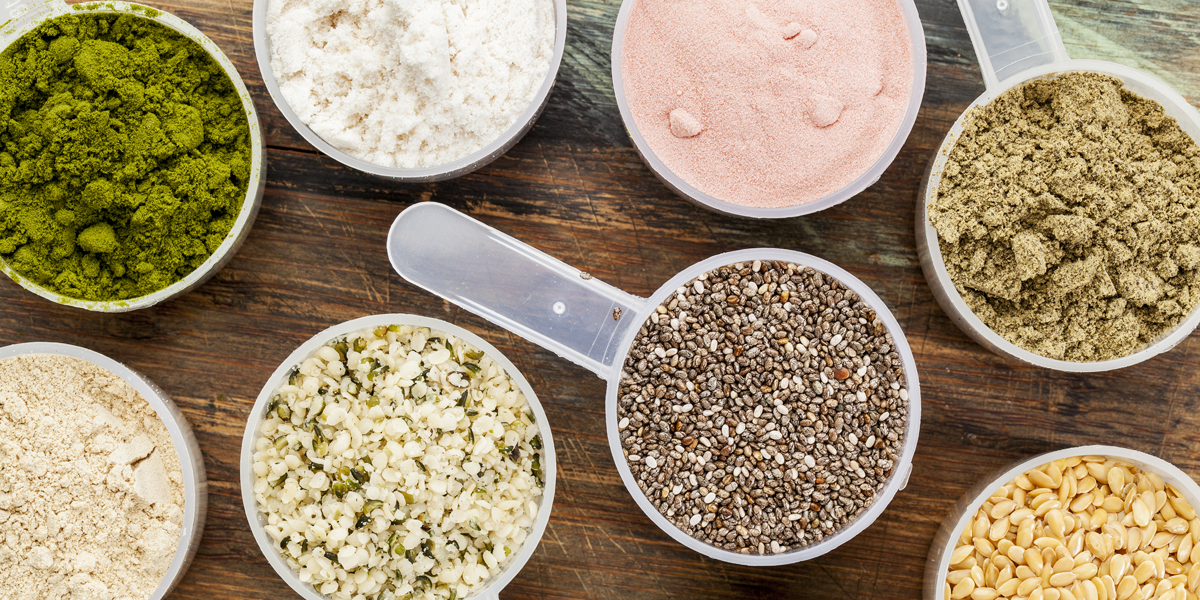 If you’ve spent any time looking into bodybuilding or work out supplements, you know just how important protein powder is. Whey protein is one of the most common types of protein powder out there, but they’re many whey protein alternatives that work just as well!
If you’ve spent any time looking into bodybuilding or work out supplements, you know just how important protein powder is. Whey protein is one of the most common types of protein powder out there, but they’re many whey protein alternatives that work just as well!
You don’t need whey protein to get ripped and big.
It’s a great protein to add to your diet just to maintain your muscle mass after a weightlifting session.
Should you decide to increase how much protein you take in to boost muscle size, that’s completely up to you.
But what happens if you’re allergic to whey, or are on a vegan or vegetarian diet? Whey is off limits in these cases, so you’ll need to look for some whey protein alternatives.
What Are The Whey Protein Alternatives?
According to the National Institute of Health (NIH) around 65 percent of us have some trouble digesting lactose after infancy.
A lot of people who aren’t allergic to milk products have stomach sensitivity to milk and have issues digesting it.
Plant protein are great whey protein alternatives! Here are five good reasons to opt for plant protein powders:
- More easily digestible, and won’t cause bloating, an upset stomach or gas
- Far less likely to contain unnecessary ingredients
- Anti-inflammatory
- Lower in cholesterol and sodium than animal protein sources
So what are the whey protein alternatives to choose from?!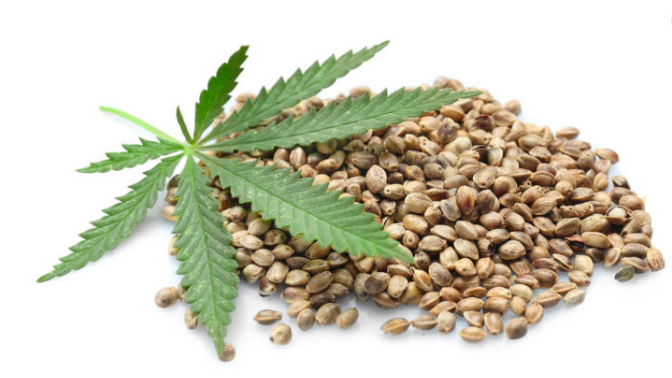
Hemp Protein
Hemp protein doesn’t have the most protein bang for the buck.
However, in terms of plant proteins, this is one of the best whey protein alternatives to go with, as it is a complete protein BCAA profile.
BCAAs, or branched-chain amino acids, are necessary for delivering protein to your muscles and using the protein to rebuild the damaged muscle tissue.
Most plants do not have a complete BCAA profile.
There are nine essential amino acids used in the delivery of protein to muscles. Most plants do not have all nine, as some are found primarily in animals.
This means, if you’re attempting to gain muscle size, plant-based protein makes it more of a challenge.
However, hemp protein has the full profile, which is what makes it one of the best plant proteins out there.
It also comes with a solid amount of omega-6 and omega-3 fatty acids, which is great for muscle recovery and improving heart health.
The hemp protein flavor tastes a bit nutty, but this means there isn’t added sugar or flavor substitutes, which does help bring down the calories (Today’s Dietitian, 2017). 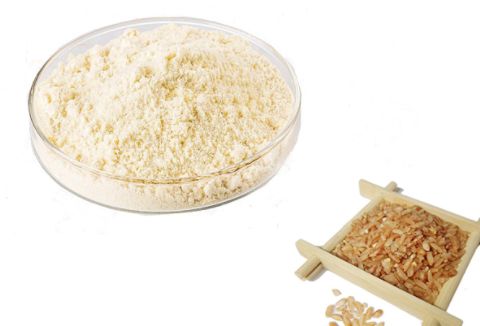
Brown Rice Protein
If you’ve had rice milk, you know it’s possible to do just about anything with brown rice (thankfully the taste of rice protein has improved in the last decade or so).
There are a number of benefits you can take from brown rice protein.
For starters, you’re getting around 25 grams of protein per serving, so it’s similar to what you’re netting with whey. It also comes with a complete BCAA profile, which makes it similar to hemp in this regard.
One thing that might surprise you about brown rice protein is that it isn’t high in carbs. Because the protein is isolated when derived from the rice most of the carbs are skimmed out.
In fact, you’ll be getting around two grams of carbs per tablespoon (so around four or so per serving), plus there is zero fat.
If you’re looking for a higher protein and complete BCAA profile you’ll probably want to consider brown rice protein and hemp protein as your whey protein alternatives.
While it has more protein than hemp, it generally has more calories then hemp, so you’ll want to look into this when considering your options.
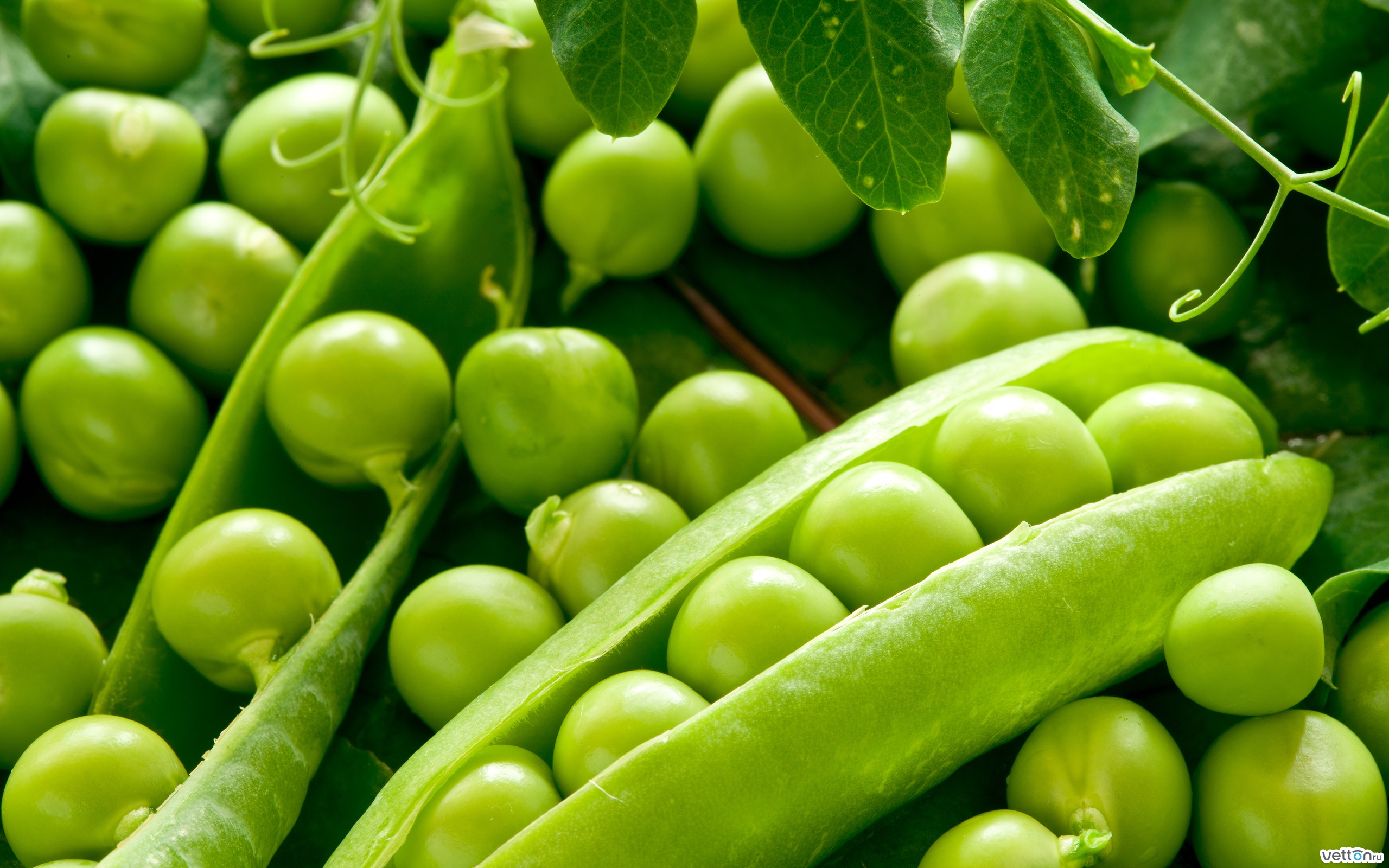 Pea Protein
Pea Protein
Pea protein delivers almost as much protein per serving as whey and it is vegan friendly!!
You’ll net around 25 grams of protein per serving with this option and is rich in plant-based iron.
Now, pea protein does have a bit more calories per gram of protein than whey, so you’ll need to keep this in mind. However, it has a higher level of fiber than what whey delivers, which helps keep you feeling fuller, longer.
This way, if you’re looking for a potential meal replacement protein powder, pea protein might be the whey protein alternative you want. If you’re looking to buy some, click here.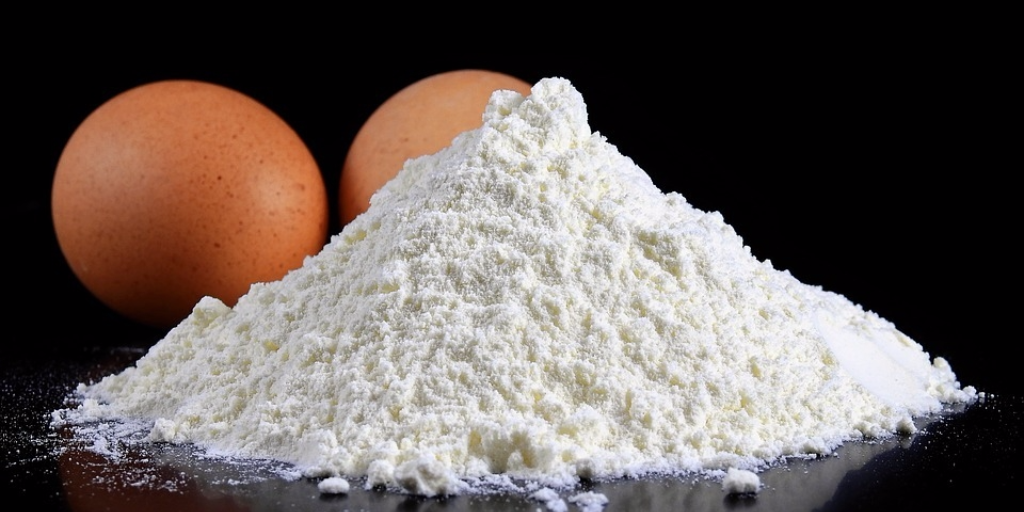
Egg White Protein
Alright, so if you’re on a vegetarian or vegan diet you probably can’t have egg whites.
If you’re lactose intolerant then this is one of the whey protein alternatives you should consider!
However, even if you’re capable of having whey, this is a protein you need to consider. In many ways, it’s actually superior to whey. The reason it hasn’t reached the same kind of popularity is that it costs more.
Egg white protein delivers an impressive calorie to a gram of protein ratio, plus its 100 percent free of fats and carbs, so you’re basically receiving complete protein calories.
Additionally, it has more BCAAs than whey, so in this case, it’s even better than whey.
You can cook up egg white meals, purchase the egg-white cartoon options from your grocery store, or buy egg white protein powder.
Because it has a higher BCAA profile, you may want to use this as your go-to post-workout protein beverage, even if you’re able to consume whey. 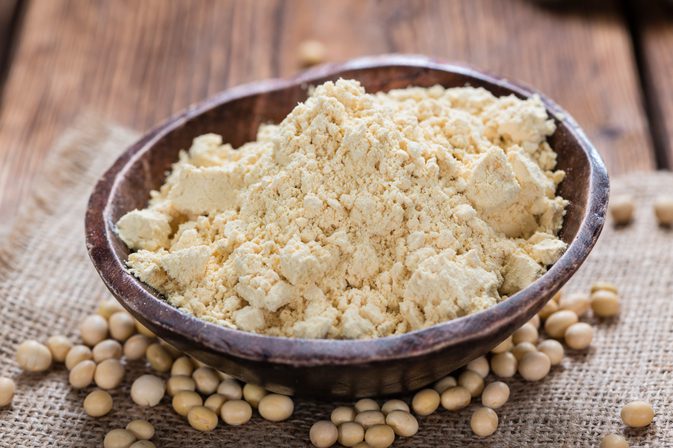
Soy Protein
Soy protein comes from the soybean.
It’s a good whey protein alternative if you can’t have lactose and if you need something that’s gluten-free.
A single serving is going to give you around 23 grams of protein, and the calorie to a gram of protein ratio is similar to whey.
You will be netting around 2 grams of carbs, and it doesn’t have the full BCAA profile, so keep that in mind.
However, it’s still an excellent source of protein for when you’re not able to have the other options, and it is far lower in calories than pea and hemp, so if you’re trying to cut calories, this is an excellent way to go.
A word of the wise though, when selecting a soy protein powder, go with a flavored option.
The unflavored soy protein is a bit difficult to swallow (literally, it tastes like chalk). So try to grab one that’s vanilla or chocolate flavored.
If you’re buying the protein in bulk from a health food store, keep this in mind as well, otherwise, you’ll be looking for ways to add flavor to it real quick. 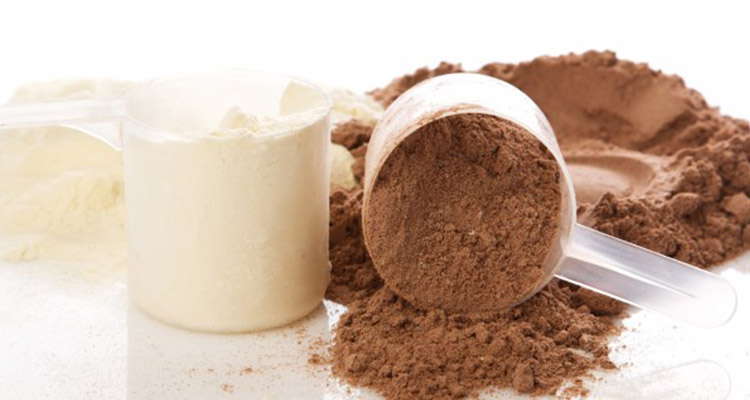
Mixed Protein Powder
Perhaps you’re going through all these different options and have no idea what to choose from.
The hemp protein looks good, but then you see something from the pea protein that you like, or maybe even the brown rice.
There’s just so many options! I know what you’re thinking, why can’t there be a combination of all these whey protein alternatives?
Well, thankfully, there is. It’s a mixed protein powder.
You’ll find you may actually get more protein than you do with whey, and for fewer calories (some products net around 30 grams of protein for 150 calories).
Now, you’ll probably have a higher carb and fat count than whey, but if you want the best of all options, this is one of the whey protein alternatives that should be considered!
Just make sure you read up on what plants are actually used within the mixed protein powder.
Most of these are going to be gluten free with no sugar added, but it’s good to know what’s in your protein before buying it. 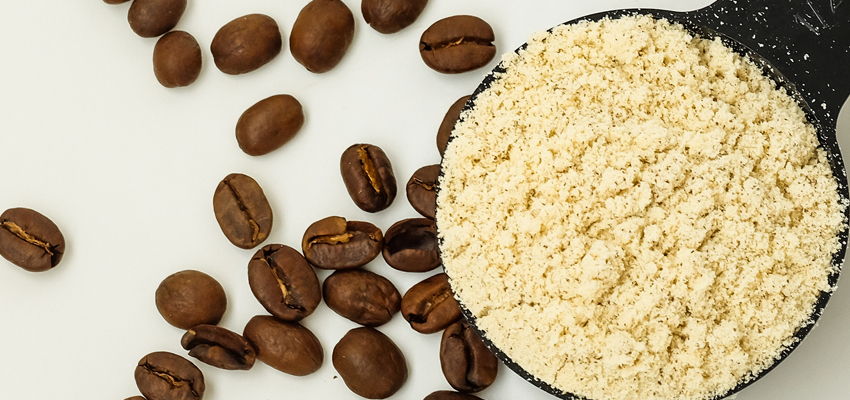
Coffee Flavored Protein
Say what!? Yes, your prayers have been answered.
There is a combination of coffee and protein option out there. And no, thankfully it’s not just ground up coffee beans, which would be murder on your stomach.
It’s basically a protein blend that infuses coffee into it. This way, you’re adding some caffeine into your protein.
There are different varieties of this out there, so you can have a soy-based protein with coffee infused into it (make sure to check what protein it is used with prior to purchasing).
This makes it a great pre-workout or morning meal replacement protein, as now you don’t need to find your caffeine somewhere else.
Although with that said, if you’re someone who gets 60 or 90 grams of protein from your protein powder, we’d recommend not using this exclusively.
Otherwise, you’re just pumping too much caffeine into your system on a regular basis, which will make it difficult to sleep (and sleep is critical to muscle growth). 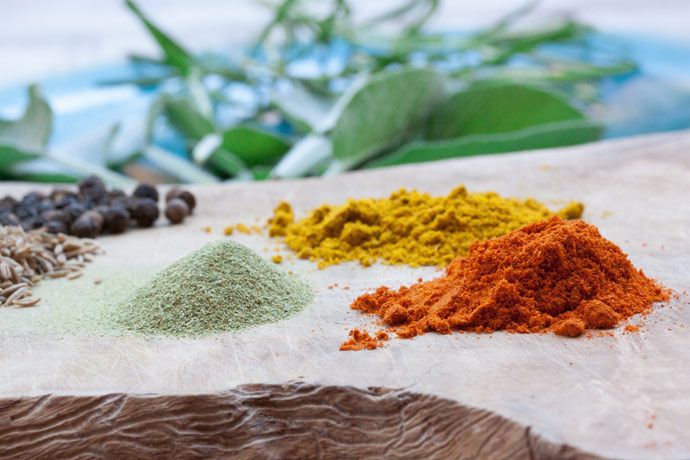
Casein Protein
This is similar to whey protein.
It’s lactose-based, so if you’re on a vegan or vegetarian diet you’re not going to be able to consume it. It also costs more than whey, which is why it isn’t as popular.
However, it acts differently in your stomach.
Whey protein is digested easily and often quickly.
This makes whey a nice protein option if you want to fuel your muscles prior to bedtime (which we recommend if you’re looking to increase muscle growth as your body performs most of its muscle repairs while you’re sleeping).
Casein, alternatively, turns to curds when it hits your stomach. This forces your body to spend more energy digesting it.
This means you’ll burn more calories during digestion and it will also keep you feeling fuller, longer.
So, if you’re able to consume a lactose-based protein and want a meal replacement option, this is one of the whey protein alternatives you should consider (University of Wisconsin, 2011). 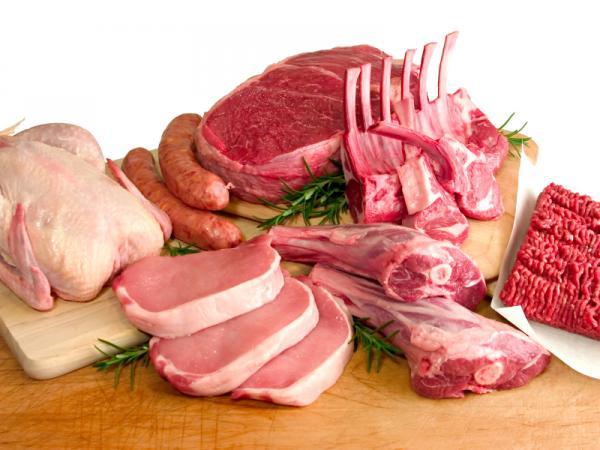
Meat Protein Powders
Yes, you can purchase meat proteins in a powder form.
If labs are generating protein powders from hemp and egg whites, you better believe they are taking meat and converting it into a powder.
Both beef and chicken protein powders are available, and we’d be willing to bet you’re going to see salmon and other fish proteins at some point in time.
Don’t worry, it’s not like a soylent green kind of protein. It’s more along the line of a dried beef or chick, similar to beef jerky, processed down into a powder form.
Naturally, you’re not going to be turning to this kind of protein if your a vegan or vegetarian.
Plus, it’s pricey. The amount of money it takes to process a cow, then convert it to a powder, isn’t cheap.
It’s far easier to convert milk or peas into a powder than chicken. So you will be paying more money for this kind of protein.
However, protein directly derived from animal protein does have its benefits.
In terms of muscle growth, the best kind of protein is animal protein because you’re basically turning the animal muscle into your own muscle. So this makes sense that a beef based protein would have more muscle growth potential than rice.
With that said, you can still get most of what you want from an animal-based protein out of hemp or pea protein powders. If you’re looking to buy a beef protein powder, click here.
Plus, if you’re really keen on getting most of your protein from animals, it’s probably better to just eat some beef jerky after a workout or go to the grocery store and buy a rotisserie chicken (University of Wisconsin, 2011).
Know Your Protein Intake
It’s important to understand your protein intake.
If you’re looking to grow your muscles you’re going to want to start at around 0.8 grams per pound you weigh and increase this to over 1. Some research suggests pushing this up to 1.5 grams per pound, while other indicates around 1 gram is more than enough, it really depends on who you want to listen to.
However, you need to understand you can’t just eat 60 grams of protein in one sitting.
Much of this will not be processed and will end up wasted. Instead, shoot for around 20 to 30 grams per meal.
If you have three main meals and then two or three snacks, you’ll have more than enough protein to get the job done (Penn State University, 2017).
![]()
Conclusion
Even if you’re on a strict diet, you can still build muscle with other whey protein alternatives.
Whey protein is great thanks to its low price point and excellent calorie to protein ratio. However, there are other protein options you can choose from that will fill the void left without whey protein.
You’ll spend a little bit more on these protein options, but you can cut down on the cost by purchasing it in bulk.
Whatever you decide to go with, just know there is always an alternative to whey protein.
Terry Asher
Latest posts by Terry Asher (see all)
- Better Family – Product Review Liquid Daily 2 oz - Dec 16, 2024
- Post-Workout Recovery: The Key to Optimal Performance - Nov 25, 2024
- Pre-Workout Supplements – Everything You Need To Know - Nov 18, 2024









[…] post The Best Whey Protein Alternatives appeared first on Gym […]
[…] Read more Here | 2018-11-23 16:00:18 Image credit: source Facebook Twitter Google+ Pinterest […]
[…] Read The Entire Article By Terry Asher Here. […]
[…] You don’t need to be attempting to bulk up to use protein powder. […]
Great article and interesting, thank you for sharing.
[…] you struggle to get enough protein in your diet, whey protein is undoubtedly one of the quickest and most convenient ways to get those numbers up. Easy to […]
I think I need a lot of information on this, thank you for sharing
[…] kind of powder is about 75 percent protein. It also has more fat and lactose in it than the other two options. The concentrate is the least expensive of the three and is what […]
Thanks for the information!
Your article is very meticulous and impressive for me, I hope to get more good posts.
The best Whey Protein alternatives you share are great. How to do it very effectively and quickly. I will learn how to choose this.
[…] kind of powder is about 75 percent protein. It also has more fat and lactose in it than the other two options. The concentrate is the least expensive of the three and is what […]
Thank you for sharing this useful article information. I am really impressed with the article you provided.
Very interesting to know about hemp protein
[…] typically trouble-causers in plant-based diets, as they’re common across plant-based proteins. Whey and soy protein have allergens as well, commonly causing discomfort for those who consume it […]
[…] to vegan bodybuilding normally consider protein intake, primarily. When it comes to nurturing muscle growth, we have decades of scientific evidence to […]
[…] to vegan bodybuilding normally consider protein intake, primarily. When it comes to nurturing muscle growth, we have decades of scientific evidence to […]
[…] to vegan bodybuilding normally consider protein intake, primarily. When it comes to […]
[…] to vegan bodybuilding normally consider protein intake, primarily. When it comes to nurturing muscle growth, we have decades of scientific evidence to […]
[…] to vegan bodybuilding normally consider protein intake, primarily. When it comes to nurturing muscle growth, we have decades of scientific evidence to […]
[…] to vegan bodybuilding normally consider protein intake, primarily. When it comes to nurturing muscle growth, we have decades of scientific evidence to […]
I really like this blog, lots of interesting information. It helps me understand a lot of problems!
[…] restrictions won’t allow you to consume enough complete proteins in powder form and opt for the plant-based powder. You can try to make it up, but it will get […]
[…] restrictions won’t allow you to consume enough complete proteins in powder form and opt for the plant-based powder. You can try to make it up, but it will get […]
I want to recommend you a good design portal https://kompaswork.ru on it you can place an order for any graphic work: drawings, sketches, digitization, 3D modeling and others. The guys have been working for a very long time and have a huge number of positive reviews.
If you are tired of looking for help in making drawings and 3D models, here is the solution for you! Visit this site – https://kompaswork.ru and find out how to do it quickly and efficiently!
I am a student and I needed help with technical drawings. I found a good design service https://kompaswork.ru and just let them design drawings for my diploma, as well as make some simple 3D models. It’s cheaper and less tiring.
Hello my friends! Please support my channel https://bit-ly.ru/ipCxf with subscription and like. Happiness and goodness to you)))
Appreciate your sharing, a great post. Really thanks
It is great and there is so much information in it on so many topics
So great! Both delicious, beautiful, and not too difficult to make, especially this cake surprised my husband with his cooking skills! Thank you!
Wow, I really like your website, very good and helpful information. thanks for sharing
Hello my friends! Please support my channel https://goo-gl.me/LbjIt with a subscription and like. Happiness and goodness to you)))
Brilliant post! We are unite with this outstanding post on our site. Keep up the striking sythesis.
This was very helpful. Exactly the kind of information I need before Starting my routine.